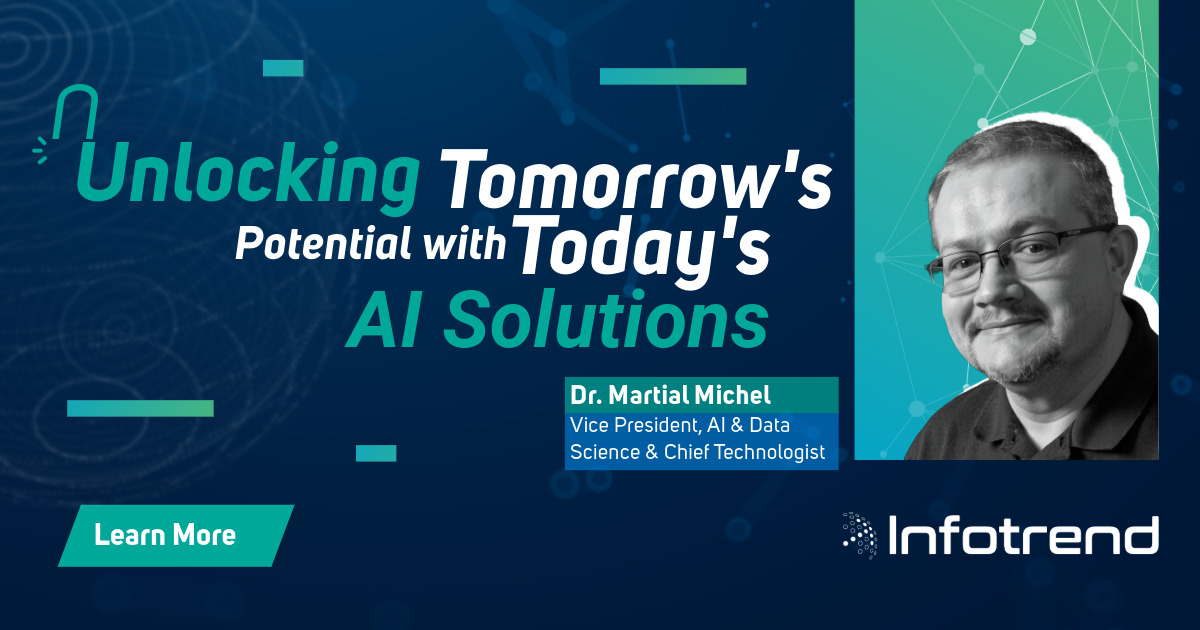The Revolutionary Advancements in AI Technology
February 18, 2025
Dr. Martial Michel
Vice President, AI & Data Science & Chief Technologist
The rapid advancements in AI technology over the past few years have been revolutionary. By 2024, large language models (LLMs) achieved significant leaps in performance and specialization and became more accessible to the global community. The contributions from leading tech companies and the vibrant open-source community drove this surge. Among the technical breakthroughs, the expansion of context windows was particularly noteworthy. In 2025, some models now process over a million tokens, vastly improving their comprehension capabilities and enabling more nuanced interactions.
The Rise of Smaller, Yet Powerful Models
Moreover, the emergence of smaller yet powerful models with only 7 billion parameters proved to be a game-changer. These models offered competitive performance levels while drastically reducing computational costs. This reduction makes them more viable for a broader range of applications and facilitates their deployment on individual devices. This shift is poised to democratize access to advanced AI capabilities, allowing users to utilize these models without needing powerful, centralized computing resources.
The Fusion of Language and Vision: Vision-Language Models (VLMs)
Vision-Language Models(VLMs) integrate the strengths of LLMs with computer vision. This fusion allows these models to simultaneously interpret and generate content from text and images, enabling more sophisticated interactions across various fields, from content creation to enhanced user interfaces. Their Visual Question Answering (VQA) application has gained substantial momentum, with many such models being open-source.
Reasoning Models: Pushing the Boundaries of Problem-Solving
In parallel, reasoning models showed tremendous progress in their problem-solving capabilities. These models push the boundaries of what AI can achieve in understanding and responding to complex queries involving visual and textual information.
Looking Ahead: The Emergence of Agentic AI Ecosystems in 2025
Looking ahead to 2025, the landscape of generative AI is expected to evolve even further with the introduction of Agentic AI ecosystems. These ecosystems will be characterized by their capacity for autonomous decision-making, learning, and executing goal-driven actions. Unlike traditional AI chatbots, these systems will operate independently, capable of designing workflows, adapting to new environments, and completing complex tasks with minimal human intervention. They are anticipated to augment various industries by autonomously taking on scheduling, software development, and workflow management tasks.
Learn more about how Infotrend can help you harness the power of AI for your business! https://infotrend.com/






